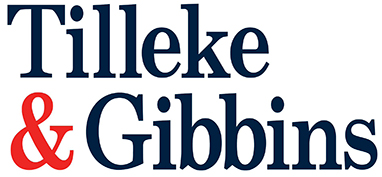Foreign investment in Vietnam continues to be encouraging. The latest figures reported by the Foreign Investment Agency for 2023 note that nearly USD5.45 billion in newly registered capital, adjusted and contributed capital for purchasing shares, and capital contributions from foreign investors was recorded from 1 January to 20 March, with realised capital from foreign investment projects estimated to exceed USD4.3 billion.

Partner
Tilleke & Gibbins
Ho Chi Minh City
Tel: +84 28 6284 5668
Email: tram.n@tilleke.com
These statistics highlight the increasing attractiveness of Vietnam as an investment destination and reflect its robust economic growth. Sectors such as technology, media and telecommunications are expected to experience increased deal-making due to rapid digitalisation. The automotive and industrial manufacturing sectors are likely to see divestments related to sustainability.
Since 2015, Vietnam has implemented various measures to strengthen its legal framework and enhance the efficiency of market governance. This has resulted in improved government management in taxation, investment, competition and e-commerce. Tax loopholes on indirect transfers have been closed, stronger rules on investment and competition are levelling the playing field, and clear frameworks for e-commerce have been established.
KEY LEGAL ISSUES
Business activities are categorised according to the Vietnam Standard Industrial Classification. These classifications determine the necessary licences, permits and regulations for operating businesses, as well as guidelines for foreign investors looking to invest in specific sectors.
Foreign investment restrictions, which are based on business activities, include limitations on foreign ownership, and conditions imposed on foreign investors such as shareholding or operations requirements. These restrictions are governed by both international treaties that Vietnam has signed and domestic laws.
Some examples of foreign investment restrictions include the following:
- Foreign investors can only own up to 99.99% of the capital of an advertising business;
- Foreign-invested enterprises may only purchase buildings for their own use and cannot sublease them to others;
- Foreign owners of 100% foreign-owned banks must have a financial capacity of at least USD10 billion in assets; and
- Foreign investors in hospital projects must capitalise the projects with at least USD20 million in investment capital.
Duong Duy Nguyen
Senior Associate
Tilleke & Gibbins
Ho Chi Minh City
Tel: +84 28 6284 8184
Email: duong.n@tilleke.com
Accordingly, M&A transactions for foreign investors require more effort, as they cannot acquire target companies and assets as easily as local investors. This protects local businesses that may not have the scale and size to compete with global players, giving them time to grow and develop.
Vietnamese regulatory bodies such as the Departments of Planning and Investment, the Ministry of Planning and Investment, the National Competition Commission and other authorities act as gatekeepers, assessing foreign investors’ financial capacity and market effects of M&A transactions before allowing parties to proceed. They also issue approvals for the movement of bank funds and the transfer of legal ownership.
Some foreign investors invest lots of time and money in novel deal structuring so they can invest in targets without foreign investment restrictions. Therefore, Vietnamese regulators learn and adapt.
In 2020, Vietnam enacted the Law on Investment, which took effect in 2021, introducing significant changes. The law provides a mechanism for the Vietnamese investment registration authority to raise a challenge in court against “sham” transactions by investors, and terminate some or all of the operations of the target companies. This risk hangs over any deal structure intended to circumvent foreign investment restrictions.
Other foreign investors directly consult Vietnamese regulators and seek exceptions to foreign investment restrictions via pilot programmes or special waivers. This is a much safer alternative to creative deal structuring. However, these foreign investors tend to be much larger and more influential, with the ability to interact at high levels of government. This option may be impractical for some investors.
One notable change in M&A approval introduced by the 2020 Law on Investment is that foreign investors acquiring shares in Vietnamese companies with land use rights in specific areas – including islands, border and coastal commune-level areas, and areas affecting national defence and security – require approval from the investment authority. This requirement poses two practical issues. First, the target company needs to declare its land use rights and provide supporting documents for evaluation by investment authorities. Second, the M&A approval process may face potential rejections or delays due to an unclear process in which the investment authority consults the Ministry of National Defence and the Ministry of Public Security regarding security and national defence conditions before granting M&A approval.

Associate
Tilleke & Gibbins
Ho Chi Minh City
Tel: +84 24 3772 6688
Email: nguyen.l@tilleke.com
Prior to 2015, Vietnam did not have specific laws regarding corporate income tax for indirect transfers, namely transactions involving transfers at the offshore holding company level, instead of direct targets in Vietnam. To address this issue, Vietnam introduced Decree 12/2015/ND-CP in 2015, which established a legal framework for the taxation of any capital transfers and investment projects that involve a Vietnamese company.
In 2018, Vietnam issued a new Competition Law, which took effect in July 2019, to establish an obligation to notify economic concentration from mergers, consolidations, acquisitions, joint ventures, and other activities prescribed by law if the economic concentration reaches a set threshold. The criteria include total asset value, total revenue and combined market share of the parties participating in the economic concentration, and the total value of the transaction. Different thresholds apply to M&A transactions of credit institutions and insurance and securities companies. A key piece of this framework is that its scope includes onshore and offshore transactions.
Since 2022, e-commerce regulations have required approval from the Ministry of Public Security for foreign investment resulting in control over one or more of the top-five e-commerce companies in Vietnam, based on total visits, number of sellers, total transactions, and total transaction value. But this list has not yet been published by the Ministry of Industry and Trade.
For M&A transactions involving projects, the transfer of ownership of the project companies, land, or project development rights may be restricted if the project or land holds some important value that requires careful vetting of the owners. Once a project investor receives in-principal approval, it may be difficult for another investor to jump in without also being subject to the same vetting process. Given these regulations, foreign investors face greater scrutiny and a plethora of approvals and requirements. Only serious investors looking for attractive opportunities in Vietnam can satisfy these conditions, which raise the quality of investors as well as the sophistication of targets.
In 2019, Vietnam was up 10 places to 67th in the Global Competitiveness Index of the World Economic Forum. Vietnam was also the only country in Asean to move up in the Global Soft Power Index 2021, increasing three places to 47th out of 60 nations.
M&A DISPUTES
For M&A transaction disputes, both parties tend to choose arbitration for lower cost and faster resolution, because Vietnamese court litigation is still cumbersome and difficult for investors to use, especially where there are concerns of local bias.
Many M&A transactions choose the Singapore International Arbitration Centre as the dispute resolution forum. However, under Vietnam’s Civil Code, civil cases with a foreign element are subject to the exclusive jurisdiction of Vietnamese courts if the cases involve rights over real property in Vietnam.
Decision 28/2020/QDKDTM-PT of the High People’s Court in Ho Chi Minh City is an example of courts applying exclusive jurisdiction for M&A deals with target companies having property rights over immovable assets. In this case, the court invalidated a capital contribution agreement that aimed to transfer projects in contravention of the law. Accordingly, if parties resolve disputes at foreign arbitration that exclusively belong to Vietnamese courts, there is a risk that they cannot enforce the awards in Vietnam.
TRENDS AND CHALLENGES
Like China, Vietnam has issued stricter regulations on bonds and foreign loans, resulting in liquidity problems for many Vietnamese companies, exacerbated by high interest rates. The sale of assets and properties, or even entire businesses, has been common in recent years, with more businesses falling into difficulties and lacking capital.
The overall trend is that M&A transactions have had lower deal values (exit values in Southeast Asia suffered a significant blow, declining by 46%) and tend to be driven by the seller’s liquidity needs, such as debt sales in the real estate sector and at banks.
Increasingly, businesses are relocating from China to Vietnam. In some cases, foreign investors see M&A as a faster way to enter the Vietnamese market than the normal business establishment process, not least because it avoids the hassle of obtaining new operational licences and permits.
Additionally, environmental, social and governance reporting, and compliance are becoming more important in Vietnam.
The Law on Investment includes a mechanism to reject extensions of projects that use obsolete, environmentally harmful technologies. A decree issued in 2022 will set requirements to reduce greenhouse gas emissions and pilot a domestic carbon credit market in the coming years, which will create revenue streams and value for companies focused on sustainability.

Tilleke & Gibbins
25/F, Viettel Tower A, Suite 2506
285 Cach Mang Thang Tam, District 10
Ho Chi Minh City, Vietnam
Contact details:
Tel: +84 28 628 45678
Email: vietnam@tilleke.com

































